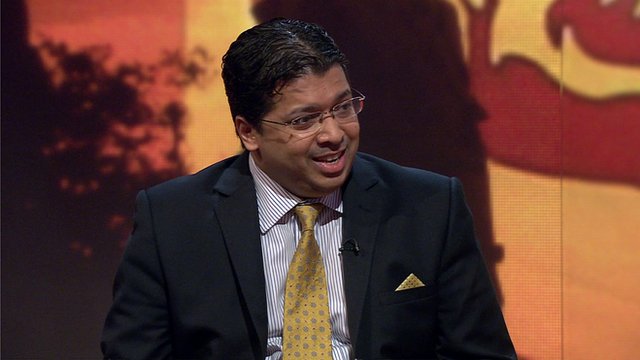Video: BBC World News Global Interview With Dr Chris Nonis
 November 29, 2013
November 29, 2013
BBC World News Global interview with Dr Chris Nonis,Sri Lankan High Commissioner to the UK
Recasting Caste: War, Displacement And Transformations
By Francesca Bremner -November 29, 2013
I explore the transformation of caste identity that occurs when the social ties and spatial practices anchoring people to place and each other are torn asunder by war. Achille Mbembe (2003) points out that, spatial relations on the ground are rewritten while occupations rage, territory is fought over and modes of control come into operation. The narratives collected in this study illustrate Mbembe’s insight into spatial relations. It traces the new history forged at the intersection of different modes of control—the State and the LTTE—by the subjects of this study.
My research was conducted in a Tamil village in the North East of Sri Lanka hitherto referred to as Ramyapuram. Caught in the middle of the Civil War between the Sri Lankan Government and the Rebel group, the Liberation Tigers of Tamil Eelam (LTTE), the village was affected from 1985 until the end of the war in 2009.
This article is based on interviews I conducted with the villagers over a period of three months in 2005. The people in the village had suffered during the war and were wary of an outsider. Building trust was not easy in a climate of fear and distrust, especially in a setting where informants had been used by both the State and LTTE to target the villagers. I interviewed 25 women during this three month period. These interviews were semi-formal conversations conducted over lunch, tea and the exchange of recipes in which fragments of narratives emerged over a period of time. These fragments repeatedly coalesced around the axis of caste, and I began to realise the importance of caste in the construction and transformation of identity in the experience of war. The destruction of lived spaces, being confined within refugee camps and the surveillance of the land spaces involved the transformation of spatial practices. This plays an important role in this study.
Since the women identified the period between 1985 and 1993 as one of devastation and change, this article is based on their experience during this period, and focuses on the narratives of women who consider themselves at the low end of the village hierarchy based on caste. Read More

